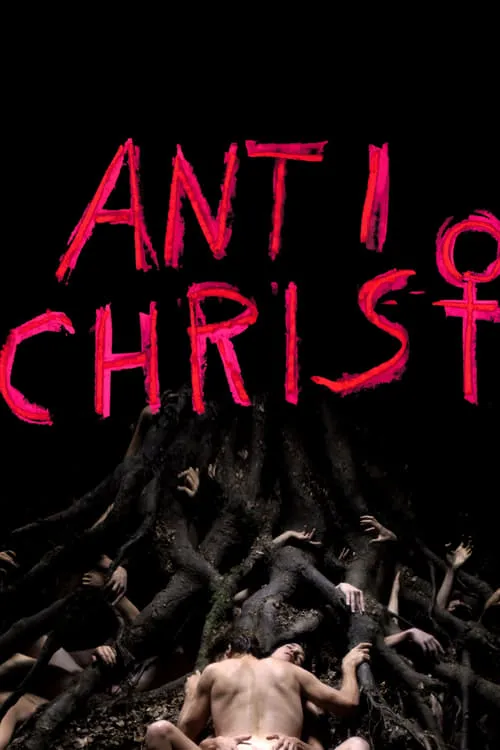Antichrist

Plot
'Antichrist' is a 2009 psychological horror film written and directed by Lars von Trier. The movie is the second installment in von Trier's 'Depression Trilogy,' following 'Breaking the Waves' (1996) and preceding 'Melancholia' (2011). This haunting and unsettling film challenges the viewer's perception of grief, pain, and the human condition. The story begins with a gruesome and distressing scene: a child falls from a window and dies, leaving the parents, He (played by Willem Dafoe) and She (played by Charlotte Gainsbourg), shattered and lost. Consumed by grief, the couple seeks solace and escape in their cabin, Eden, a remote retreat in the woods. They hope to find some semblance of peace, to reconnect, and to mourn the loss of their child together. However, as they settle into their cabin, their grief and pain begin to consume them, and it soon becomes apparent that their marriage is on the brink of collapse. The couple's emotions, their relationship, and their very sanity are put to the test as they struggle to cope with their irreparable loss. The cabin, Eden, a supposed sanctuary, becomes a site of turmoil and suffering, as He and She's anguish and despair intensify. The isolation and the unrelenting power of nature seem to taunt and exacerbate their emotions, forcing them to confront the darkest aspects of their human nature. He, a philosophy professor, attempts to cope with his grief by intellectualizing it, using the concept of "The Law of Jante" as a coping mechanism. This ancient code, originating from Scandinavian folklore, outlines principles for a harmonious community, but He sees it as a means to control his pain. In stark contrast, She is more instinctual and primal in her grief, her emotions and thoughts raw and visceral. As their emotional pain worsens, their relationship becomes more and more strained. Their interactions are laced with anger, aggression, and hostility, which eventually devolves into violent outbursts and graphic, disturbing scenes. The once peaceful cabin is now a battleground, where both characters are forced to confront the deepest, most primal fears and desires. Nature, too, plays a significant role in the unfolding drama. The forest, once a serene and idyllic backdrop, becomes a menacing and unforgiving presence, as the couple is exposed to its raw, unyielding power. The sounds of nature, the rustling of leaves, and the call of birds, which initially bring a sense of peace, gradually become a cacophony of terror. As the story progresses, it becomes clear that He and She are trapped in a maelstrom of emotions, which threatens to destroy them. Their grief has become a cancer, consuming every aspect of their lives. Their love, their sanity, and their very existence are at stake. In the climactic final scenes, He and She are pushed to the limit, forced to confront the darkest aspects of their own souls. The line between reality and madness is blurred as they are consumed by their grief. The cabin, once a sanctuary, has become a prison, a place where their suffering has been amplified and distorted. Ultimately, the ending of 'Antichrist' is open to interpretation, leaving the viewer to ponder the fate of He and She. Some may see the final scenes as a descent into madness, while others may interpret it as a desperate attempt to cope with the unendurable pain of losing a child. The film's ambiguous conclusion, combined with its unflinching portrayal of grief, pain, and the human condition, makes 'Antichrist' a deeply unsettling and thought-provoking experience. This masterpiece of psychological horror forces the viewer to confront the darkest aspects of human nature and the devastating consequences of loss.
Reviews
Recommendations




